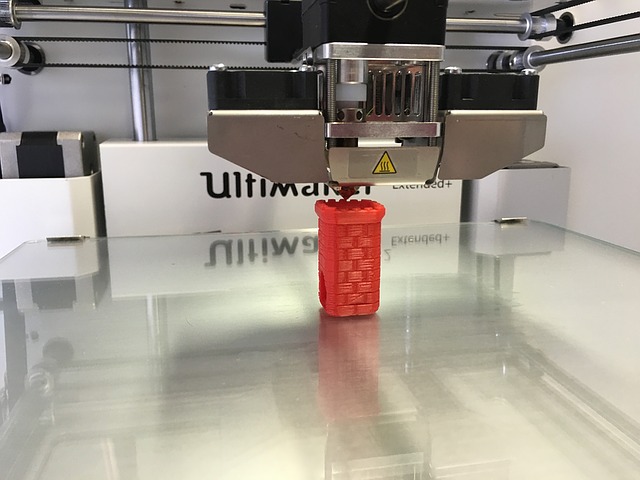
Tomorrow's World
Five Exciting Engineering Jobs of the Future
Read a summary using the INOMICS AI tool
Current or future engineers; are you in your final years of college and wondering what’s next? Have you wondered how or if your career will change over the course of the next 30 years? These seem to be very good questions considering what engineering jobs were 30 years ago compared to what they are now. In the 1980s, computers were just beginning to become popular and mainstream and with that, a flourish of software/computer/information technology careers were ripe for a new generation of engineers. Similarly, with the advent of computers, many tasks that were done by hand were now being completed electronically, such as modelling, whether it be physical property modelling of a new polymer, or modelling a force diagram for a soon to be constructed bridge. The big question is, what will engineering look like in 2047? Will it be the same or will there be a significant breakthrough that changes everything like the computer did 30 years ago? Here is a list of five exciting engineering careers for the future that mainly focus on the ideas of the megatrends that shape our world.
1. Agricultural Engineering
Universal food availability for everyone on the Earth is a common megatrend seen throughout most corporations. Many of the largest corporations, namely Dupont, Bayer, and BASF, have made very large strides in strengthening these portions of their business. Agricultural engineers will have the task of developing new seeds or new irrigation systems to allow food to grow in the Sahara Desert, or the Arctic conditions in Yakutsk, Siberia.
2. Water Management Engineering
Like food, everyone on Earth should have access to clean water. This may sound basic to most First World countries but this can be a day to day struggle for many parts of the world. Water engineers will be responsible for developing desalination or reverse/forward osmosis systems to purify saltwater for countries bordered by large oceans or dirty water, in areas where waste management systems are not as effective. It will also be important to develop membrane filtration systems that will be able to filter contaminants at the micro, and nano-scales for large municipal systems or personal refrigerators more efficiently. There is another trend to develop the most energy-efficient systems and membranes that are typically known to need very little energy to operate, and are typically driven by pressure differences.
3. 3-D Printing Engineers
3-D printing is an industry on the cusp of “taking off.” There will be a need for engineers in this industry that will be able to understand the plastics/ceramics/metals being used to create 3-D printed objects, the software that is being used to generate the 3-D models and, finally, the equipment being developed to create these intricate designs that were difficult to achieve with standard plastics processing equipment. The 3-D printing industry has a vision to be in everyone’s home, led by Hewlett-Packard, with low cost 3-D printers, so the need for expertise will be needed everywhere, not just at large corporations. It is an industry with huge potential and will need many engineers to flourish.
The 3-D printing industry has a vision to be in everyone’s home, led by Hewlett-Packard, with low cost 3-D printers, so the need for expertise will be needed everywhere, not just at large corporations. It is an industry with huge potential and will need many engineers to flourish.
4. Robotics Engineering
Robotics, like the computer over the past 30 years, can be a significant game changer throughout engineering across many disciplines. There may be robots running plastics extruders or injection moulders, or more robots on the assembly line in the manufacture of an automobile, or even robots assembling the newest smartphone. Robots are even finding a place in the medical industry. Robotics engineers incorporate both computer and mechanical engineering into a new and unique area. This used to be a niche engineering area but it is now being offered at more universities and is continuing to grow more than many other engineering disciplines.
5. Battery Engineering
Energy storage will continue to grow as so much of everyday life becomes electronic. Standard AA batteries are being replaced by Lithium ion batteries which have higher energy capacity, and the next generation of batteries is not far behind. The consumer needs batteries that last longer, can run many computer functions simultaneously, and at a reasonable price. This space will also include alternative energy sources such as fuel cells. This niche of engineer will incorporate chemical, electrical, and mechanical engineering.
In general, the future of engineering will generally trend towards a conglomerate of traditional engineering. Traditional engineers typically entail mechanical, chemical, electrical, civil, and computer engineering. Each of the future engineering positions incorporate at least two of these disciplines into a new and exciting type of engineer.
For students and early-career engineers, some good advice is to not be afraid of taking a course in a different discipline. It’s likely that you will need to learn something outside of your traditional space in your career so take the plunge early and try something new. For more experienced engineers, keep learning new things, research new ideas, and keep your eyes and ears open for the latest trends.








